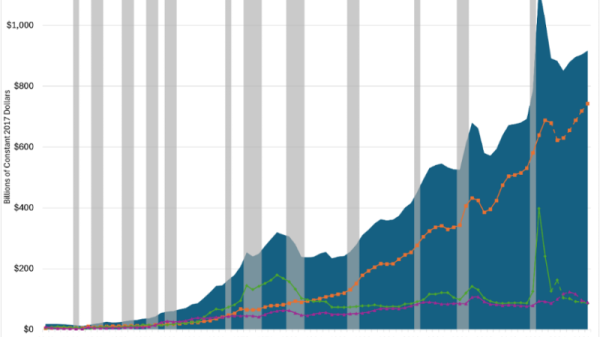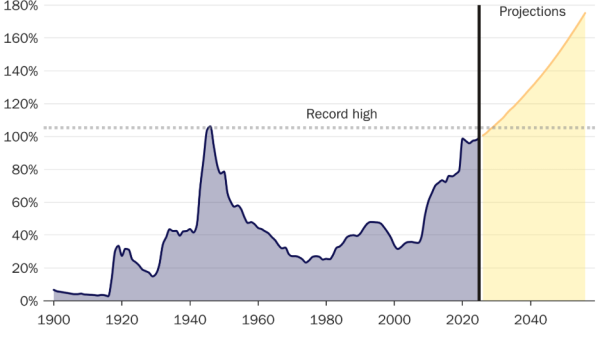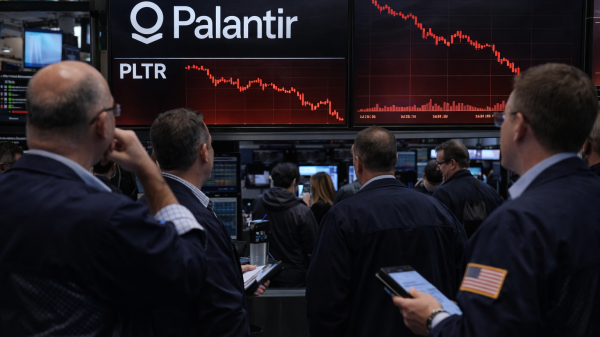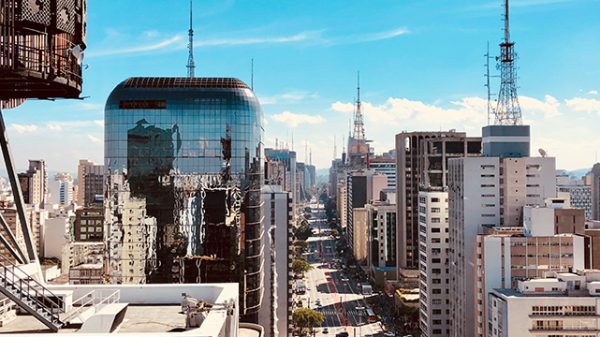Trade is an engine for growing wealth, and a world moving toward increased integration has traditionally been viewed as advantageous for all. Trade relations between nations, however, are a contentious matter and government interference seems to never cease as political officials try to tip the trade scales in favor of domestic producers. The false notion that markets can be easily manipulated is deeply concerning, as is the officials’ eagerness to ignore the problematic and absurd nature of protectionist programs derived from both sides of the party line.
The Trump Administration’s unnerving aspirations for raising tariff rates have received immense attention and intense scrutiny (as well they should). The current administration’s complete disregard for the historical and empirical data on the damaging effects of tariff hikes should be called out (and it is). Given that many are taking up the charge for reminding us about the pitfalls of protectionism, this article will direct attention to a non-tariff barrier to free trade — preferential treatment.
The resurgence of the mercantilist philosophy proves that history can repeat itself and so, trade favoritism and discrimination may also see a rebirth. It is perhaps worth recalling how preferential trade terms distort markets and shackle economic growth.
Preferential Tariff Treatment
In 1964, the UN Conference on Trade and Development (UNCTAD) was established as an ‘institutional response’ to developing countries ascending to new roles in the global market after the age of decolonization. UNCTAD was tasked with addressing economic growth concerns and overseeing the implementation of Part IV of the General Agreement on Tariffs and Trade (GATT). Part IV granted favor to developing countries through the Generalized System of Preferences (GSP), allowing developed countries to administer advantageous tariff rates to imports originating from the developing world. Such preferential trade terms were classified as special and differential (S&D).
UNCTAD aimed for a subsequent reduction of select tariffs and launched the Integrated Programme for Commodities (IPC) to manage and monitor market structures for generating remunerative and consistent prices for commodity goods. By the mid-1970s, the IPC was in full effect and contained a Common Fund consisting of buffer stocks that could be increased when prices were down and sold off when prices rose. But stabilizing prices for extended periods proved problematic and, by the 1980s, the IPC was deemed to be ineffective.
In retrospect, the IPC was destined to fail, since the initiatives derived from UNCTAD came about largely due to political concerns and gave little consideration for the actual dynamics of trade. When new, low-cost cocoa and coffee producers emerged from East Asia, for example, they had no interest in limiting their harvests to stabilize prices, since they could benefit from higher prices in Latin America and Africa. In short, the efficacy of the IPC’s Common Fund was derailed by individual interests and the misaligned incentives of “special and differential” allotments.
Export Promotion Assistance
Another major initiative aimed at generating beneficial trade opportunities for poor producers was the European program Système de Stabilisation des Recettes d’Exportation (STABEX). STABEX was established in the 1970s when the European Community (EC) realized price fluctuations for commodity goods created hardships for the economic standing of the developing world. Accordingly, the EC embarked on negotiations to improve terms with African, Caribbean, and Pacific countries who were dependent on commodity exports and former European colonies. STABEX, however, was later reprimanded, in 1997, by the Word Trade Organization (WTO) for being in violation of the uniformity of treatment clause.
The formal establishment of the WTO, in 1995, generated a multilateral trading system in which any specialized treatment required WTO approval. And, unsurprisingly, economic development became a contentious topic during trade rounds. In the end, the consolidated interests of higher powers present within the WTO derailed STABEX’s plans. It is worth noting, though, that the WTO does oversee development initiatives, in conjunction with UNCTAD, by means of the International Trade Centre (ITC). The ITC’s stated purpose is to put “trade-led growth at the centre of its work in developing countries” and it uses “trade as a tool to achieve the United Nations Global Goals.”
Trade and The Right to Development
The rationale for linking the UN’s Sustainable Development Goals to trade initiatives and capital markets was made explicit when, in the 1980s, a working group arranged by the UN Commission on Human Rights brought forth the Declaration on the Right to Development (RtD). RtD is defined as “an inalienable human right by virtue of which every human person and all peoples are entitled to participate in, contribute to and enjoy economic, social, cultural and political development.” RtD conveyed the idea of “economic and social rights” as being intertwined with “civil and political rights” and it was derived from the UN’s call for a New International Economic Order (NIEO).
The NIEO viewpoint was distinct from a neoliberal mindset in that state interference was deemed to be necessary – evidenced by the UN General Assembly’s adoption of the Charter of the Economic Rights and Duties of States. The Charter featured some twenty principles, ranging from commodity price-setting to efforts against inequality, and even though it received support from 120 countries, the disapproval of some of the world’s most powerful governments negated any potential for the enforcement of ‘development rights.’
Despite the shortcomings of RtD, development is positioned by those in political power as not only an economic concern, but also a moral concern. And international organizations and politicians looking to fulfill their “moral duty” are likely to continue to muddy international trade waters by justifying interference on the grounds of establishing a level playing field. But, in the words of Machiavelli, “so in all human affairs one notices, if one examines them closely, that it is impossible to remove one inconvenience without another emerging… for one never finds any issue that is clear cut and not open to question.” Or more succinctly, in the words of Thomas Sowell, “There are no solutions, only trade-offs.” This is certainly true when it comes to trade.
Trade-offs and Trade
Global integration has traditionally been positioned as an essential element for promoting economic growth, but it is more difficult to discern the role of trade in development. And clearly, the desire to help the world’s poor will almost never overcome the more concentrated lobbying interests of domestic producers.
Trade constitutes a complex web of supply chains, networks, and relationships representing an exchange between willing parties with individual interests. This is why markets work best when left alone. Whether punitive or preferential, top-down plans for trade rarely play out as intended. Having learned this from history, political elites tempted to tamper with trade transactions should heed the words of Ludwig von Mises:
The market alone puts the whole social system in order and provides it with sense and meaning.
The market is not a place, a thing, or a collective entity. The market is a process, actuated by the interplay of the actions of the various individuals cooperating under the division of labor. The forces determining the — continually changing — state of the market are the value judgments of these individuals and their actions as directed by these value judgments… There is nothing inhuman or mystical with regard to the market. The market process is entirely a resultant of human actions. Every market phenomenon can be traced back to definite choices of the members of the market society.
Indeed, prices and preferences should be determined by transacting parties, whether across the street or across the globe, since any external tactics intended to inhibit or incentivize a trade will be misguided at best and counterproductive at worst. To be sure, initiatives pertaining to economic integration and development have done more to embolden the positions of political elites, rather than empower producers and consumers in the marketplace.



























